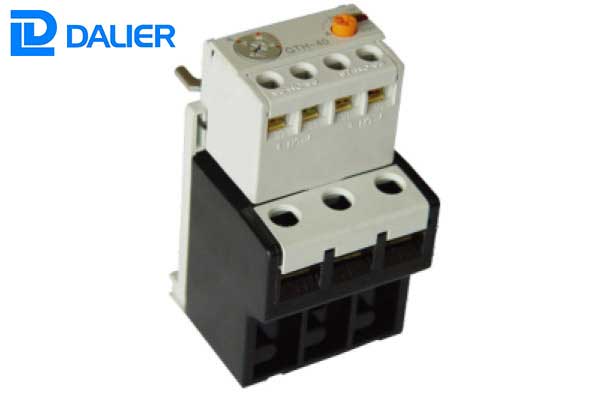How to judge a good or bad thermal overload relay
Use a clamp-on ammeter to measure the current, then observe the thermal relay action current, if it is indeed larger than the action current, please check the motor, if the motor is not a problem, replace the high-capacity thermal relay, such as than the thermal relay action current is small, need to replace the thermal relay.
Thermal overload relay are generally installed in places where the temperature is relatively high. It must be on the housing of the motor. Use a multimeter to measure the on/off. If it is on, it is good. If it is still off at a long temperature, replace it. If you don't have a multimeter, connect the two wires directly. If the long start means that the thermal relay is bad and does not start properly, you can listen to the motor to see if there is a buzzing sound. If so, consider that the motor is stuck. If not, check if there is a point input. The input motor is bad. If there is no input look for other problems.
Thermal overload relay for electromagnetic (voltage, current, intermediate) relays, the sensing mechanism that is the electromagnetic system. It is detected in the following ways.
【Coil failure detection】 Thermal overload relay coil failure usually has coil insulation damage; mechanical injury to form a short circuit between turns or grounding; due to low power supply voltage, dynamic, static core contact is not tight, so that the current through the coil is too large, the coil is hot to burn. When repairing, the coil should be rewound. If the armature does not close after the coil is energized, it may be that the coil lead wire connection is off, making the coil break. Check the disconnection and weld it on.
【Core fault detection】 The main thermal overload relay core fault is that the armature does not suck after power is applied. This may be due to coil disconnection, moving, static iron core between the foreign body, power supply voltage is too low, etc.. The situation should be repaired differently. After the power is turned on, the armature noise is large. This may be due to the dynamic, static iron core contact surface is not flat, or oil pollution caused by. When repairing, the coil should be removed, file or grind its contact surface; if there is oil pollution should be cleaned. Large noise may be caused by short circuit, ring fracture, repair or replace the new short circuit ring can be. After the power failure, the armature can not be immediately released, which may be due to the dynamic core is stuck, the core air gap is too small, spring strain and core contact surface with oil and other causes. Inspection should be treated differently for the cause of the fault, or adjust the air gap so that it is protected in 0.02 ~ 0.05mm, or replace the spring, or use gasoline to clean the oil. For the thermal relay, its sensing mechanism is the thermal element. Its common fault is the thermal element burned out, or thermal element misoperation and non-action.





